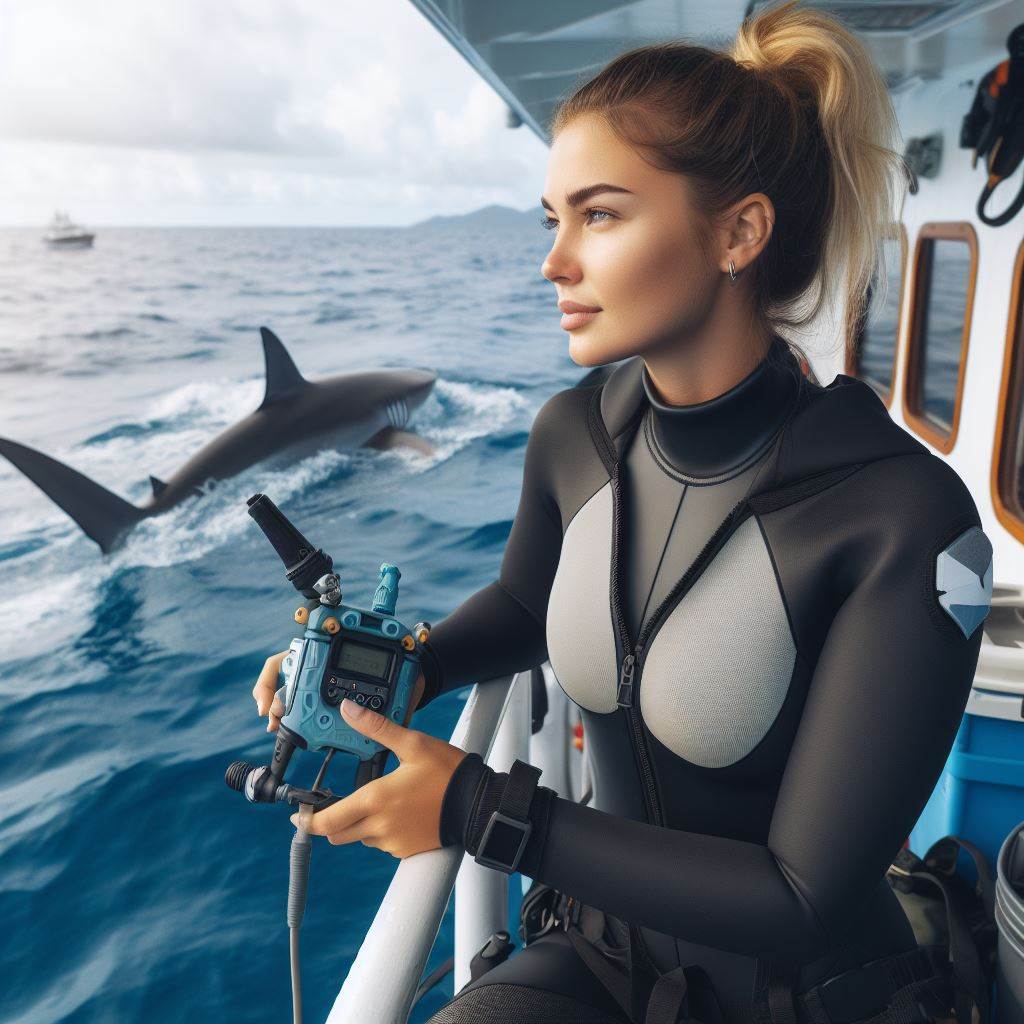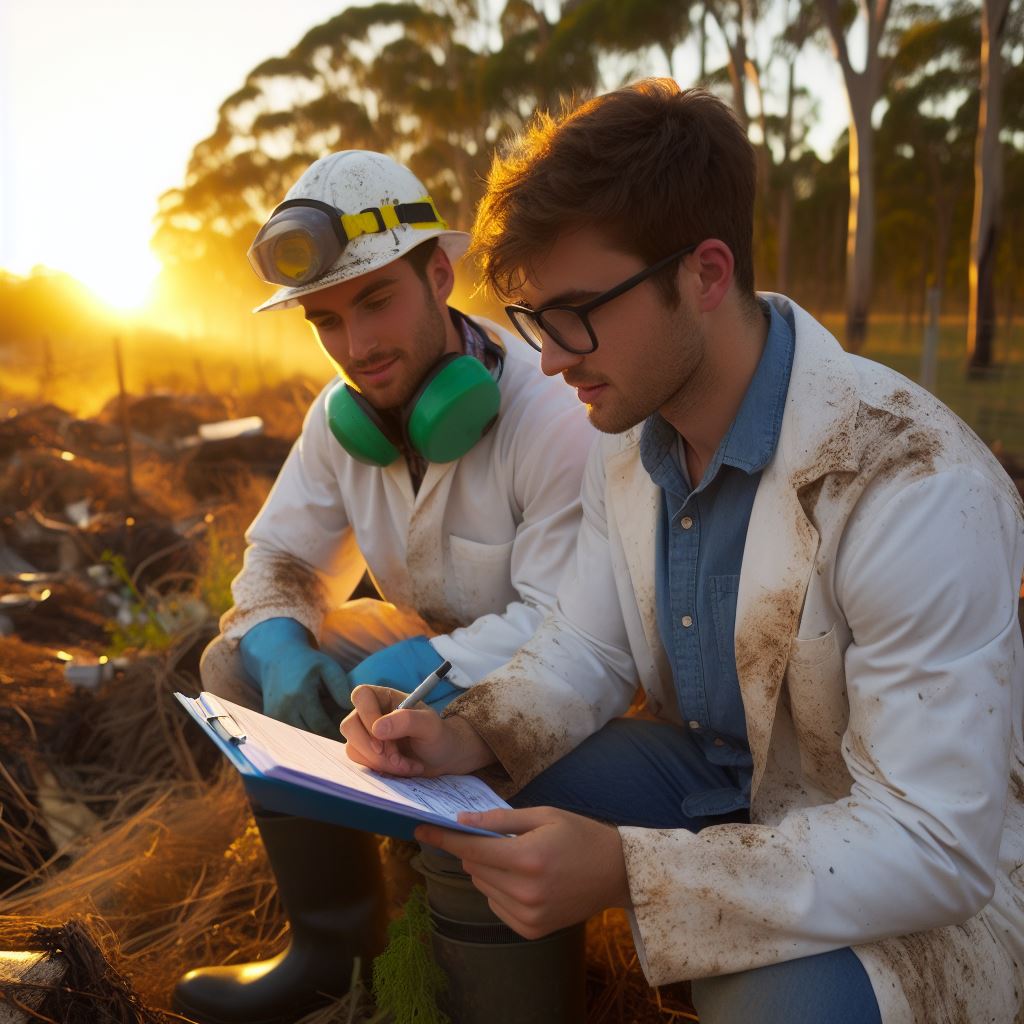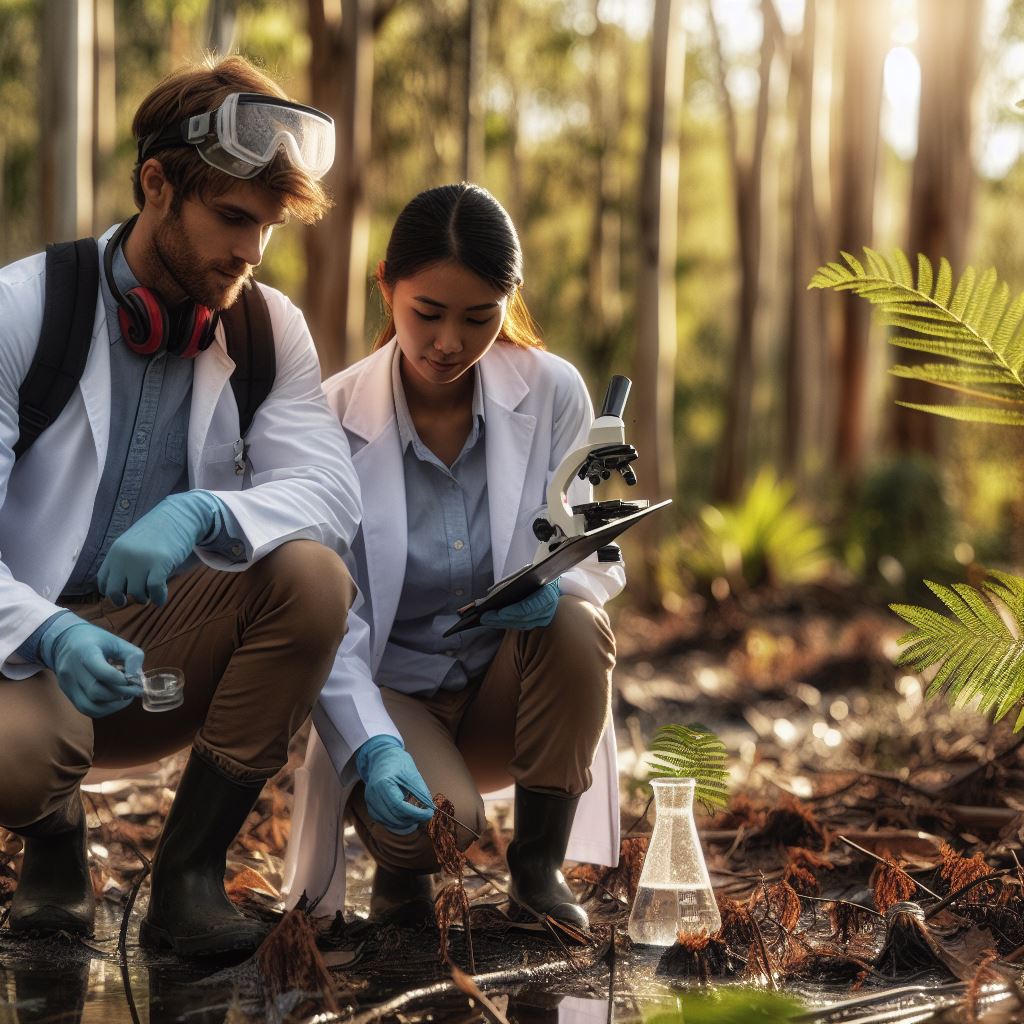Introduction
Women in marine biology in Australia
Women have made significant contributions to the field of marine biology in Australia. This blog post explores the importance and relevance of women in this field and provides a roadmap for what will be discussed.
Significance and relevance of this topic
The role of women in marine biology in Australia cannot be underestimated. Their contributions have shaped the field and advanced our understanding of the marine ecosystem.
This topic is significant because it sheds light on the achievements and challenges faced by women in a male-dominated field.
Roadmap for the blog post
In this blog post, we will first discuss the historical context of women’s participation in marine biology in Australia. We will explore the pioneering efforts of women scientists and the barriers they had to overcome.
Next, we will highlight some prominent women in Australian marine biology. Their work has not only contributed to scientific knowledge but also paved the way for future generations of women scientists.
We will also address the ongoing challenges faced by women in this field, such as gender bias, lack of representation, and work-life balance. It is crucial to acknowledge and address these issues to promote gender equality and diversity in marine biology.
Finally, we will explore the initiatives and organizations that are working towards empowering and supporting women in marine biology. These efforts are essential for creating a more inclusive and equal field for future generations of women scientists in Australia.
Basically, women have played a vital role in marine biology in Australia. Despite the challenges they face, their contributions continue to shape the field.
This blog post aims to highlight their achievements, address the obstacles they encounter, and advocate for gender equality in marine biology.
Statistics
Marine biology, a fascinating field that studies the vast and diverse ecosystems of our oceans, has traditionally been male dominated. However, in recent years, there has been a gradual shift towards greater gender representation.
Let’s delve into the statistics and explore the progress made by women in marine biology in Australia, comparing these numbers to other STEM fields and the general workforce.
Representation of Women in Marine Biology in Australia
- According to recent statistics, women make up approximately 40% of the marine biology workforce in Australia.
- This figure highlights a significant increase compared to previous years, indicating a positive trend towards greater gender diversity.
- However, it is important to note that this percentage still falls short of equal representation.
Comparing Statistics to Other STEM Fields and the Overall Workforce
- When compared to other STEM fields, such as engineering and computer science, where women represent around 20-30% of the workforce, marine biology appears to have a relatively higher representation of women.
- Nonetheless, both marine biology and other STEM fields face similar challenges of gender disparity, with women being underrepresented in leadership roles and facing biases in career advancement.
Disparities and Progress in Recent Years
- While progress has been made in increasing the representation of women in marine biology, disparities still exist, particularly in senior positions.
- Many female marine biologists face obstacles related to work-life balance, unconscious bias, and limited networking opportunities.
- Efforts are being made to address these disparities, with initiatives such as mentorship programs, networking events, and gender-equity policies being implemented across various academic and research institutions.
- These initiatives aim to create a more inclusive and supportive environment for women in marine biology, providing them with the tools and opportunities to thrive.
- Additionally, research collaborations and partnerships with industry organizations are being forged to further promote gender diversity and female leadership in the field.
The Importance of Gender Diversity in Marine Biology and STEM
- Gender diversity is crucial in marine biology and other STEM fields, as it fosters innovation, creativity, and a broader range of perspectives.
- Diverse teams are more likely to generate groundbreaking research and impactful solutions to complex environmental challenges.
- Encouraging and supporting women in marine biology not only benefits individual scientists but also contributes to the advancement of the field as a whole.
Therefore, the representation of women in marine biology in Australia has shown progress in recent years, with an increase in their workforce participation.
While disparities still exist, initiatives are underway to address these challenges and promote gender diversity.
Recognizing the importance of women’s contributions to the field, it is crucial to continue supporting and empowering women in marine biology and other STEM disciplines for the benefit of scientific progress and our marine ecosystems.
Historical Background
- Women in marine biology in Australia have a rich and fascinating history.
- In the early days, women faced numerous barriers and prejudices in the field.
- Despite these challenges, several notable women made significant contributions to marine biology.
- One such figure is Dr. Isabella Gordon, who was the first woman to be appointed as a marine biologist in Australia.
- Dr. Gordon conducted groundbreaking research on marine algae and became a renowned expert in the field.
- Another pioneering woman in Australian marine biology is Dr. Mary Gillham.
- Dr. Gillham’s research focused on marine ecosystems and revealed the interconnectedness of marine life.
Notable Achievements and Figures
- Dr. Isabella Gordon’s appointment as a marine biologist broke barriers for women in the field.
- Her research on marine algae greatly contributed to our understanding of aquatic ecosystems.
- Dr. Mary Gillham’s work highlighted the importance of conserving marine environments.
- She documented the impacts of human activities on marine species and advocated for conservation efforts.
- Another influential figure is Dr. Elizabeth Pope, who specialized in marine mammal research.
- Dr. Pope’s studies on dolphins and whales greatly advanced our knowledge of these species.
Challenges and Barriers
- Women in the past faced significant challenges and barriers in pursuing careers in marine biology.
- They were often excluded from educational opportunities and faced discrimination in the workplace.
- Preconceived notions of gender roles limited women’s access to fieldwork and research opportunities.
- Women were often assigned to more administrative tasks rather than being involved in scientific research.
- The lack of female mentors and role models hindered the progress of aspiring women marine biologists.
- However, despite these obstacles, women persevered and made remarkable contributions to the field.
Women in marine biology in Australia have overcome historical barriers and made significant contributions to the field.
Notable figures like Dr. Isabella Gordon, Dr. Mary Gillham, and Dr. Elizabeth Pope have paved the way for future generations.
Although challenges existed, these women’s dedication and expertise have shaped our understanding of marine ecosystems.
It is crucial to acknowledge their achievements and continue supporting women in pursuing careers in marine biology.
By promoting diversity and inclusivity, we can ensure a thriving and equitable future for the field.
Read: Navigating Chem Grad Studies in Australia
Your Personalized Career Strategy
Unlock your potential with tailored career consulting. Get clear, actionable steps designed for your success. Start now!
Get StartedCurrent Landscape
The state of women in Australian marine biology is evolving but faces challenges.
Women remain underrepresented despite progress.
A study by the Australian Institute of Marine Science reveals trends.
Only 28% of marine biology researchers are women.
Leadership positions show even lower representation, at 18%.
Certain sub-disciplines like marine ecology exhibit higher female presence.
Others, like marine genetics, still lack gender balance.
Initiatives like the Women in Marine Science Network support women.
Mentorship programs and networking events aid career advancement.
The Australian Academy of Science promotes women in STEM.
Measures include promoting role models and addressing bias.
Challenges such as unconscious bias persist despite efforts.
Visibility of women in the field is increasing.
Organizations strive for gender equality in marine biology.
Continued support can ensure a diverse and inclusive future.
Read: Balancing Lab Work and Life in Australia
Success Stories: Women in Marine Biology in Australia
Marine biology, a field dominated by men, has seen remarkable contributions from women in Australia. These inspiring success stories demonstrate their resilience, determination, and valuable contributions to the field.
Dr. Lisa Martini
- Dr. Lisa Martini, a pioneer in marine conservation, has dedicated her life to protecting the Great Barrier Reef.
- She led a team of scientists in developing innovative techniques to restore coral reefs damaged by climate change.
- Martini’s research and advocacy have raised awareness about the critical condition of Australia’s marine ecosystems.
Professor Emma Sullivan
- Professor Emma Sullivan is renowned for her groundbreaking work on marine mammal behavior and communication.
- She discovered novel communication patterns among dolphins, challenging conventional understanding of their communication abilities.
- Sullivan’s research has revolutionized the field and inspired a new generation of marine biologists.
Dr. Sarah Mitchell
- Dr. Sarah Mitchell is a leading expert in marine biodiversity conservation.
- Her research on seagrass ecosystems has shed light on their ecological importance and the threats they face.
- Mitchell’s work has paved the way for effective conservation strategies and policy development.
Professor Samantha Harper
- Professor Samantha Harper’s research focuses on the impacts of climate change on coral reef ecosystems.
- She has developed innovative techniques to study the adaptive mechanisms of corals, leading to potential solutions for their survival.
- Harper’s work has provided crucial insights into the future of coral reefs in a changing climate.
Dr. Natalie Chen
- Dr. Natalie Chen’s contribution lies in the field of marine genetics and genomics.
- Her groundbreaking research has uncovered the genetic adaptations of marine organisms to changing ocean conditions.
- Chen’s work plays a crucial role in understanding and predicting the impacts of environmental change on marine biodiversity.
These women have overcome numerous challenges in their careers, including gender biases and limited opportunities, to achieve remarkable success in marine biology. Their accomplishments serve as an inspiration for aspiring female scientists.
By forging new paths, they have not only advanced scientific knowledge but also made significant contributions to environmental conservation efforts. The success stories of Dr.
Lisa Martini, Professor Emma Sullivan, Dr. Sarah Mitchell, Professor Samantha Harper, and Dr. Natalie Chen demonstrate the immense potential and impact of women in marine biology in Australia.
As the field continues to evolve and face new challenges, it is crucial to celebrate and support the achievements of these exceptional women who have shaped marine biology in Australia and beyond.
See Related Content: Networking Tips for AU Researchers
Obstacles and Challenges
Women in Australian marine biology encounter numerous obstacles and challenges in their careers.
Gender bias affects their progression and recognition.
Unequal opportunities hinder women’s success in marine biology.
Achieving work-life balance poses challenges for women.
Demanding nature of marine biology work complicates balancing career and personal life.
Discrimination and stereotypes reinforce biases against women.
Efforts address gender inequality are ongoing.
Organizations promote inclusion and advancement of women.
Initiatives provide equal opportunities for women in research and leadership.
Mentorship programs support women navigating marine biology careers.
Conferences and workshops highlight women’s achievements and discuss strategies.
Raising awareness about women’s issues contributes to gender equality.
Education is crucial in addressing gender bias and promoting opportunities.
Encouraging girls to pursue STEM subjects fosters inclusivity.
Creating a supportive work environment is essential for gender equality.
Implementing policies ensures equal pay, flexible arrangements, and career opportunities.
Valuing women’s contributions fosters inclusivity and diversity.
Overcoming challenges benefits women and the field.
Women contribute significantly to marine biology and inspire future generations.
Read: Must-Attend Chemistry Conferences in Aus

Discover More: Balancing Academia and Industry in Physics
Support and Mentorship in Marine Biology: Empowering Women in Australia
When it comes to pursuing a career in marine biology, women often face unique challenges and barriers. However, with the right support systems and mentorship, these obstacles can be overcome, allowing women to thrive in this field.
The Importance of Support Systems and Mentorship
Having a strong support system is crucial for women in marine biology.
It provides a sense of belonging, helps address gender-based biases, and fosters an inclusive environment. Support can come in various forms: from colleagues, supervisors, family, friends, and professional networks.
Mentorship plays a vital role in empowering women in marine biology. Mentors offer guidance, inspiration, and valuable advice based on their experiences. They can help navigate career choices, develop skills, and expand professional networks.
Existing Mentorship Programs and Support Networks
Fortunately, there are several mentorship programs and support networks available for women in marine biology in Australia
Stand Out with a Resume That Gets Results
Your career is worth more than a generic template. Let us craft a resume and cover letter that showcase your unique strengths and help you secure that dream job.
Get Hired- Women in Marine Science Network (WiMS): WiMS is a platform that connects women across various disciplines in marine science. It provides opportunities for mentorship, networking, and professional development.
- Australian Marine Science Association (AMSA) Women’s Mentoring Program: This program aims to bridge the gender gap in marine science by pairing experienced mentors with early-career researchers. It offers guidance and support for career advancement.
- Graduate Women Queensland (GWQ): GWQ offers scholarships, grants, and mentoring opportunities for women pursuing careers in science, including marine biology. Their support helps women overcome financial barriers and gain access to valuable resources.
Resources and Tips for Women Seeking Mentorship or Support
If you are a woman seeking mentorship or support in the field of marine biology, here are some resources and tips to consider:
- Connect with Professional Associations: Join organizations like AMSA or WiMS to connect with like-minded professionals and potential mentors.
- Build a Network: Attend conferences, workshops, and seminars to build valuable connections with experts and potential mentors in the marine biology community.
- Seek Out Internal Mentoring Programs: Many academic institutions and research organizations have internal mentoring programs in place. Reach out to your institution’s career services or human resources department to inquire about such opportunities.
- Online Forums and Communities: Join online forums and communities dedicated to marine biology to network with professionals in the field and seek mentorship advice.
- Be Proactive: Approach potential mentors directly. Craft a thoughtful email explaining why you admire their work and how you believe their mentorship could benefit your career.
In general, support systems and mentorship are instrumental in empowering women in marine biology in Australia.
Through existing mentorship programs, support networks, and available resources, women can overcome barriers, thrive professionally, and contribute significantly to the field.
By actively seeking mentorship and support, women can break through gender biases and achieve their full potential in marine biology.
Read: Innovative Chemistry Startups in Australia
Closing Thoughts
Key points discussed throughout the blog post
In closing, this blog section has shed light on the significant contributions of women in marine biology in Australia. We have highlighted the achievements and challenges faced by these remarkable individuals. It is evident that gender equality is crucial in this field.
Importance of gender equality in marine biology in Australia
The importance of providing equal opportunities and recognition to women in marine biology cannot be overstated. By fostering an inclusive environment, we can tap into diverse perspectives and talents, leading to improved research outcomes and conservation efforts.
Encourage further research, support, and dialogue on this topic
To further advance gender equality, it is essential to continue researching, supporting, and promoting dialogue on this topic.
By amplifying the voices of women and advocating for their equal representation, we can create a more equitable and inclusive future for the field of marine biology in Australia.
Let us strive to break down barriers, challenge societal norms, and empower women to pursue their passion for marine biology. Together, we can create a more inclusive and diverse scientific community that will benefit our oceans and planet as a whole.




